| CONFERENCE AGENDA |
| Go directly to: Monday, Nov 20 – Tuesday, Nov 21 (DREAM) – Download Mobile App |
| SUNDAY – DAY 1 – November 19, 2017 |
| START TIME |
END TIME |
SESSION TYPE |
Registration with continental breakfast (7:30am to 9:30am)
8:00am - 5:00pm
Location: MSK Lobby |
| 9:00 am |
9:15 am |
Welcome |
| 9:15 am |
10:00 am |
Keynote - Dana Pe'er
A single cell lens into development and disease |
| 10:00 am |
10:15 am |
Ryan Peckner
Linear deconvolution unlocks next-generation mass spectrometry data to enable systems-level analysis of gene regulation by protein phosphorylation networks |
| 10:15 am |
10:30 am |
Dayanne M. Castro, Nick De Veaux, Emily Miraldi and Richard Bonneau
Adaptive Multiple Sparse Regression for Gene Regulatory Network Inference |
| 10:30 am |
10:45 am |
Charles Blatti, Casey Hanson, Bryce Kille and Saurabh Sinha
Modeling changes in transcriptomic state from a massive library of cellular signatures |
| 10:45 am |
11:15 am |
Coffee Break
Location: MSK Lobby & RM 105 |
| 11:15 am |
11:30 am |
Yuning Zhang and Raluca Gordan
Why ChIP-seq data is not the ‘absolute truth’ about where and how strongly TFs bind in vivo, and what can we do about it? |
| 11:30 am |
11:45 am |
Fadia Ibrahim, Manolis Maragkakis, Panagiotis Alexiou and Zissimos Mourelatos
Ribothrypsis mediates widespread, ribosome-phased, endonucleolytic decay of canonical mRNAs |
| 11:45 am |
12:30 pm |
Keynote - Laxmi Parida
Precision Oncology: Are we there yet? |
| 12:30 pm |
2:00 pm |
Lunch Break (on-own) |
| 2:00 pm |
2:45 pm |
Keynote - Debbie Marks
Learning the Secrets of Sequences with Generative Models
|
| 2:45 pm |
3:00 pm |
Alon Diament, Anna Feldman, Elisheva Schochet, Martin Kupiec, Yoav Arava and Tamir Tuller
The extent of ribosome queuing in budding yeast |
| 3:00 pm |
3:15 pm |
Genevieve Stein-O'Brien, Luciane Kagohara, Sijia Li, Manjusha Thakar, Ruchira Ranaweera, Hiroyuki Ozawa, Haixia Cheng, Michael Considine, Alexander Favorov, Ludmila Danilova, Joseph Califano, Evgeny Izumchenko, Daria Gaykalova, Christine Chung and Elana Fertig
Integrated time-course omics analysis distinguishes immediate therapeutic response from acquired resistance |
| 3:15 pm |
3:30 pm |
Liying Chen, Gabriela Alexe, Neekesh V. Dharia, Linda Ross, Amanda Balboni Iniguez, Amy Saur Conway, Emily Jue Wang, Veronica Veschi, Norris Lam, Jun Qi, W. Clay Gustafson, Nicole Nasholm, Francisca Vazquez, Barbara A. Weir, Glenn S. Cowley, Robin M. Meyers, Aviad Tsherniak, David E. Root, James E. Bradner, Todd R. Golub, Charles W. M. Roberts, William C. Hahn, William A. Weiss, Carol J. Thiele and Kimberly Stegmaier
Functional Deconvolution Strategies for the Identification of Druggable Dependencies in Pediatric Tumors |
| 3:30 pm |
4:00 pm |
Coffee Break
Location: MSK Lobby & RM 105 |
| 4:00 pm |
4:15 pm |
Antonio Gomes, Nathan Johns, Anthony Yang, Sriram Kosuri, Christopher S. Smillie, Mark B. Smith, Eric J. Alm and Harris Wang
Promiscuity in gene expression of horizontally acquired DNA |
| 4:15 pm |
4:30 pm |
Francesco Asnicar, Luca Masera, Serena Manara, Nicola Segata and Enrico Blanzieri
Large-scale microbial ecological interaction networks from shotgun metagenomics with the NESRA algorithm |
| 4:30 pm |
5:15 pm |
Keynote - Jef Boeke
Writing genomes |
| 5:30 pm |
7:00 pm |
Reception with poster viewing
Location: MSK Lobby & RM 105 |
| - top - |
| MONDAY – DAY 2 – November 20, 2017 |
| START TIME |
END TIME |
SESSION TYPE |
Registration with continental breakfast (7:30am to 9:30am)
8:00am - 5:00pm
Location: MSK Lobby |
| 9:00 am |
9:15 am |
Special Session Welcome |
| 9:15 am |
9:30 am |
Duygu Ucar
The chromatin accessibility signature of human immune aging stems from CD8+ T cells |
| 9:30 am |
10:15 am |
Keynote - Jedd Wolchok
Immunologic Checkpoint Blockade: Exploring Combinations and Mechanisms |
| 10:15 am |
10:30 am |
Bojan Losic, Amanda Craig, Sebatiao Martins-Filho, Carlos Villacorta-Martin, Swan Thung, Myron Schwartz, Gustavo Stolovitzky and Augusto Villanueva
Network view of immune editing in liver cancer clonal evolution |
| 10:30 am |
10:45 am |
Yuri Pritykin, Mary Philip, Edison Chiu, Varintra Krisnawan, Pete Sabo, John Stamatoyannopoulos, Philip Greenberg, Christina Leslie and Andrea Schietinger
Integrative analysis of genome-wide chromatin accessibility and gene expression data to characterize T cell self-tolerance |
| 10:45 am |
11:15 am |
Coffee Break
Location: MSK Lobby & RM 105 |
| 11:15 am |
11:30 am |
Andrew Martins, Manikandan Narayanan, Thorsten Prüstel, Bethany Fixsen, Kyemyung Park, Rachel Gottschalk, Yong Lu, Cynthia Andrews-Pfannkoch, William Lau, Katherine Wendelsdorf and John Tsang
Do differences from cell to cell make a difference? Network of propagated single-cell variations tuned by macrophage environments |
| 11:30 am |
11:45 am |
Joshua Pan, Robin Meyers, Brittany Michel, Nazar Mashtalir, Ann Sizemore, Jonathan Wells, Seth Cassel, Francisca Vazquez, Barbara Weir, William Hahn, Joseph Marsh, Aviad Tsherniak and Cigall Kadoch
Functional analysis of mammalian protein complexes using genome-scale fitness screens |
| 11:45 am |
12:30 pm |
Keynote - Nir Hacohen
Explaining, predicting and generating immune responses against cancer |
| 12:30 pm |
12:45 pm |
Sponsored Tech Talk: Recursion Pharmaceuticals
AI and Cellular Images for Universal Drug Discovery |
| 12:45 pm |
2:00 pm |
Lunch Break (on-own) |
| 2:00 pm |
2:45 pm |
Keynote - Erez Leiberman-Aiden
A 3D Code in the Human Genome |
| 2:45 pm |
3:00 pm |
Alexander Shanku, Cindy Kalita, Anthony Findley, Heejung Shim, Francesca Luca and Roger Pique-Regi
circuitSNPs: Predicting Effects Of Genetic Regulatory Variants Using Deep Neural Networks |
| 3:00 pm |
3:15 pm |
Déborah Gerard, Florian Schmidt, Aurélien Ginolhac, Martine Schmitz, Rashi Halder, Peter Ebert, Marcel Schulz, Thomas Sauter and Lasse Sinkkonen
Temporal epigenomic profiling identifies AHR as dynamic super-enhancer controlled regulator of mesenchymal multipotency |
| 3:15 pm |
3:30 pm |
Justin Finkle, Behnam Nabet, Jonathan Licht and Neda Bagheri
Pairing gene expression dynamics with in silico simulations produces novel layers of mechanistic insight into Sprouty transcription programs |
| 3:30 pm |
4:00 pm |
Coffee Break
Location: MSK Lobby & RM 105 |
| 4:00 pm |
4:15 pm |
Daniel Kim, Viviana Risca, Arwa Kathiria, James Chappell, Zhixin Zhao, Adam Rubin, Dana Pe'Er, Howard Chang, Michael Snyder, Will Greenleaf, Paul Khavari and Anshul Kundaje
Decoding regulatory sequence across skin differentiation |
| 4:15 pm |
4:30 pm |
Dongwon Lee, Ashish Kapoor, Alexias Safi, Lingyun Song, Marc Halushka, Gregory Crawford and Aravinda Chakravarti
Mapping human cardiac cis-regulatory elements, their functional sequence variants and their cognate transcription factors |
| 4:30 pm |
5:15 pm |
Keynote - Manolis Kellis
From Genetics To Therapeutics: Uncovering And Manipulating The Circuitry Of Non-coding Disease Variants |
| 5:30 pm |
7:00 pm |
Reception with poster viewing
Location: MSK Lobby & RM 105 |
| - top - |
| DREAM AGENDA - Tuesday – November 21, 2017 |
| START TIME |
END TIME |
SESSION TYPE |
Registration with continental breakfast (7:30 to 9:30am)
8:00am - 12:00pm
Location: MSK Lobby |
| 8:40 am |
9:00 am |
DREAM 11: Welcome and Introductory Remarks - Gustavo Stolovitzky |
| 9:00 am |
9:40 am |
Keynote Presentation - Henry Rodriguez
Omics Convergence (Proteogenomics) in Cancer Research: Advances in Precision Medicine |
| CPTAC CHALLENGE - Paul Boutros, Chair |
| 9:40 am |
10:00 am |
Invited Talk - David Fenyo
Cancer Proteogenomics |
| 10:00 am |
10:20 am |
Challenge Overview Talk: The CPTAC Challenge - Julio Saez Rodriguez
The NCI-CPTAC DREAM Proteogenomics Challenge |
| 10:20 am |
10:40 am |
Best Performer Talk - Xinzhou Ge
The CPTAC Challenge: Imputation of Protein Abundances by Iterative Matrix Completion Algorithms with Bagging |
| 10:40 am |
11:00 am |
Best Performer Talk - Hongyang Li
Predicting Cell Line-Specific Protein and Phosphoprotein Abundances |
| 11:00 am |
11:30 am |
Coffee Break with Posters
Location: MSK Lobby & RM 105 |
| CHALLENGES UPDATE - Jim Costello, Chair |
| 11:30 am |
11:45 am |
Challenge Update: Respiratory Viral DREAM Challenge - Solly Sieberts
Respiratory Viral DREAM Challenge: Discovering dynamic molecular signatures in response to viral exposure |
| 11:45 am |
12:00 pm |
Challenge Update: SMC-Het and SMC-RNA Challenges - Paul Boutros
SMC-Het and SMC-RNA Challenge Update |
| 12:00 pm |
12:15 pm |
Challenge Update: DREAM Workflow Execution/Multiple Myeloma - Justin Guinney
Crowdsourcing a High-risk Classifier for Multiple Myeloma Patients |
| 12:15 pm |
12:45 pm |
Feedback: The Good, Bad, and Ugly of DREAM Challenges - Gustavo Stolovitzky |
| 12:45 pm |
2:00 pm |
Lunch with Posters
Location: MSK Lobby & RM 105 |
| Digital Mammography - Gustavo Stolovitzky, Chair |
| 2:00 pm |
2:20 pm |
Challenge Overview Talk: Digital Mammography Challenge- Thomas Schaffter
The Digital Mammography DREAM Challenge: Design and Results |
| 2:20 pm |
2:40 pm |
Best Performer Talk - Yaroslav Nikulin
Digital Mammography DREAM Challenge: Deep Learning vs Breast Cancer |
| 2:40 pm |
3:00 pm |
Best Performer Talk - Dezso Ribli
Computer aided detection of cancerous lesions on mammograms with the Faster R-CNN object detection framework |
| 3:00 pm |
3:30 pm |
Panel Discussion: Members of the collaborative Team |
| 3:30 pm |
4:00 pm |
Coffee Break with Posters
Location: MSK Lobby & RM 105 |
| 4:00 pm |
4:40 pm |
Keynote Presentation - Joel Dudley
Moving from Precision Medicine to Next Generation Healthcare |
| DIGITAL BIOMARKER - Larsson Omberg, Chair |
| 4:40 pm |
5:00 pm |
Challenge Overview Talk: The need for Digital Biomarkers in Parkinson's Disease - Mark Frasier
The Need for Digital Biomarkers in Parkinson's Disease |
| 5:00 pm |
5:20 pm |
Challenge Overview Talk: Digital Biomarker Challenge - Solly Sieberts
The Parkinson’s Disease Digital Biomarker DREAM Challenge: Understanding mobile sensor features that predict disease |
| 5:20 pm |
5:40 pm |
Best Performer Talk - Yuanfang Guan
Augmentation techniques for data from mobile sensors |
| 5:40 pm |
6:00 pm |
Best Performer Talk - Patrick Schwab
Automated Extraction of Digital Biomarkers for Parkinson's Disease using A Hierarchy of Convolutional Recurrent Attentive Neural Networks |
| 6:00 pm |
7:00 pm |
DREAM Reception and Posters
Location: MSK Lobby & RM 105 |
| 7:00pm |
|
Adjourn |
| - top - |

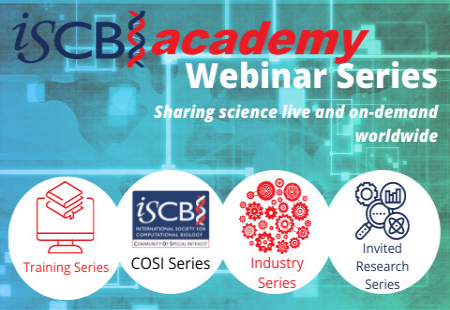

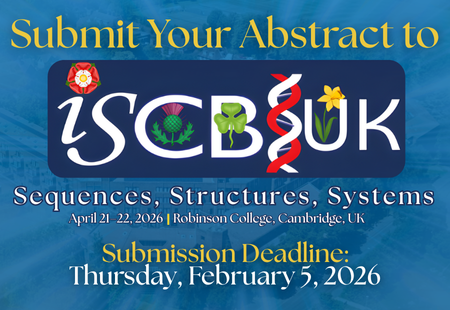
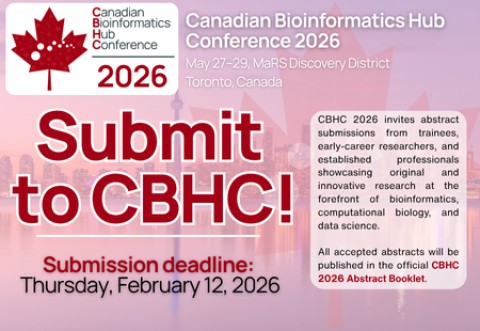
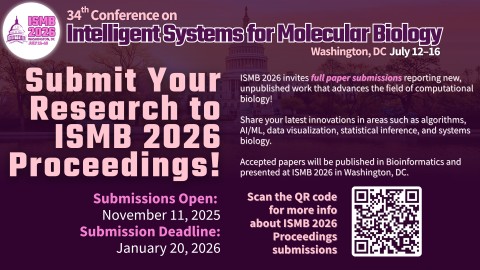

















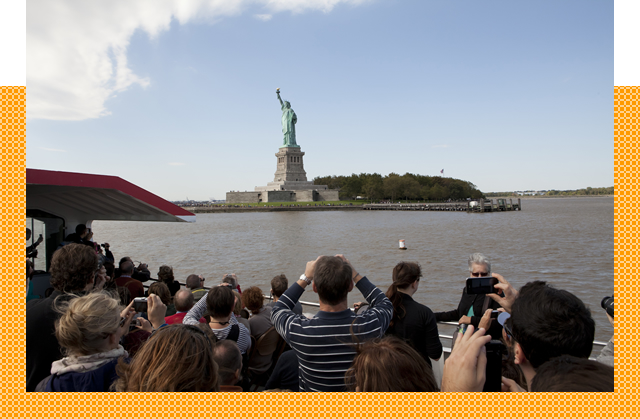


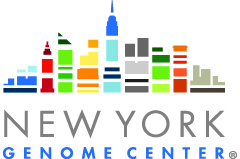

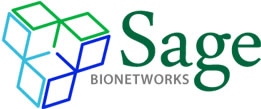
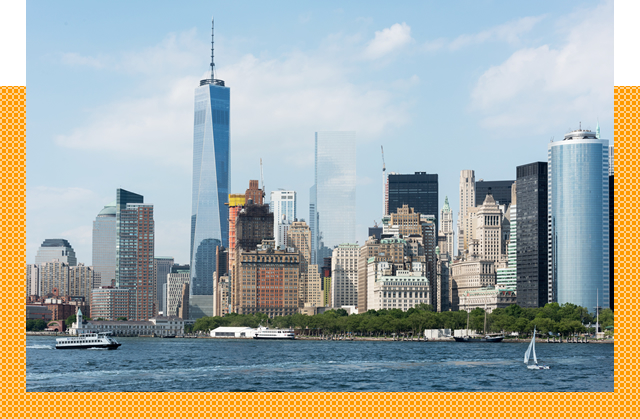
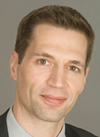
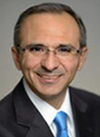
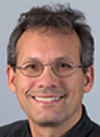
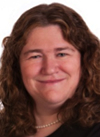
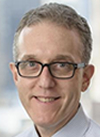
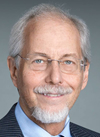
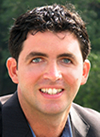
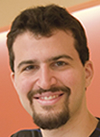
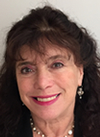
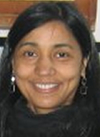
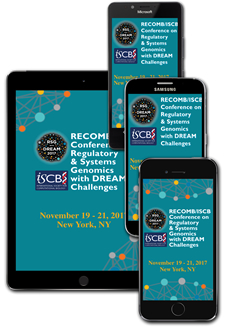
.png)




